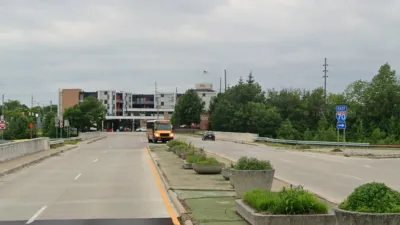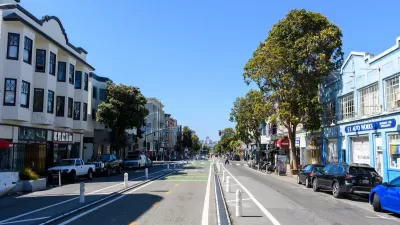A review of the book by Mike Lydon and Anthony Garcia asks the question. The answer is a clear "yes."

Josh Stephens reviews Tactical Urbanism for the California Planning & Development Report, noting that the concept "Tactical Urbanism" has solidified its place in the cultural milieu enough to be considered, indeed, "a thing."
"The reification of tactical urbanism has arrived now for four reasons, according to Lydon and Garcia: shifting demographics, radical connectivity, the Great Recession, and citizen frustration. They translate to, respectively, millenials' [sic] return to center cities, the Internet and smart phones, and the high cost of development; the last one is self-explanatory."
Stephens's review of the book describes the book as more of a "how-to guide" than dense theorizing. Worth noticing, according to Stephens's interpretation, is what the growing practice of "Tactical Urbanism" says about the world. Stephens writes: "Practitioners of tactical urbanism wouldn’t need to change the landscape if it wasn’t so lousy in the first place. Typical city planning practices are simply too slow and the concern for stakeholder input perhaps too earnest. They write, 'our cities are suffering because there is simply too much process and not enough doing.' This is a radical manifesto born of frustration."
FULL STORY: Book Review: Tactical Urbanism: Short-term Action for Long-term Change

Maui's Vacation Rental Debate Turns Ugly
Verbal attacks, misinformation campaigns and fistfights plague a high-stakes debate to convert thousands of vacation rentals into long-term housing.

Planetizen Federal Action Tracker
A weekly monitor of how Trump’s orders and actions are impacting planners and planning in America.

In Urban Planning, AI Prompting Could be the New Design Thinking
Creativity has long been key to great urban design. What if we see AI as our new creative partner?

King County Supportive Housing Program Offers Hope for Unhoused Residents
The county is taking a ‘Housing First’ approach that prioritizes getting people into housing, then offering wraparound supportive services.

Researchers Use AI to Get Clearer Picture of US Housing
Analysts are using artificial intelligence to supercharge their research by allowing them to comb through data faster. Though these AI tools can be error prone, they save time and housing researchers are optimistic about the future.

Making Shared Micromobility More Inclusive
Cities and shared mobility system operators can do more to include people with disabilities in planning and operations, per a new report.
Urban Design for Planners 1: Software Tools
This six-course series explores essential urban design concepts using open source software and equips planners with the tools they need to participate fully in the urban design process.
Planning for Universal Design
Learn the tools for implementing Universal Design in planning regulations.
planning NEXT
Appalachian Highlands Housing Partners
Mpact (founded as Rail~Volution)
City of Camden Redevelopment Agency
City of Astoria
City of Portland
City of Laramie





























